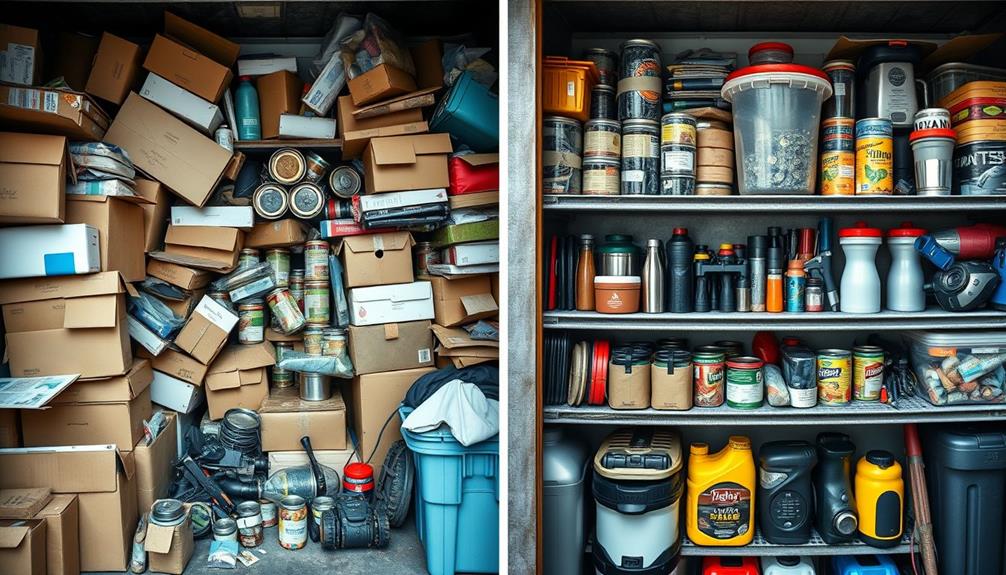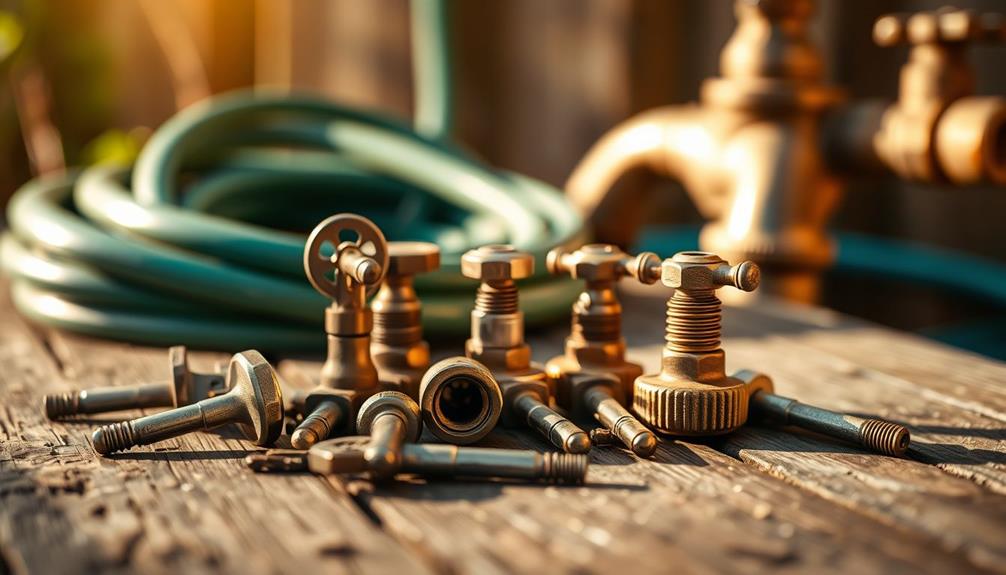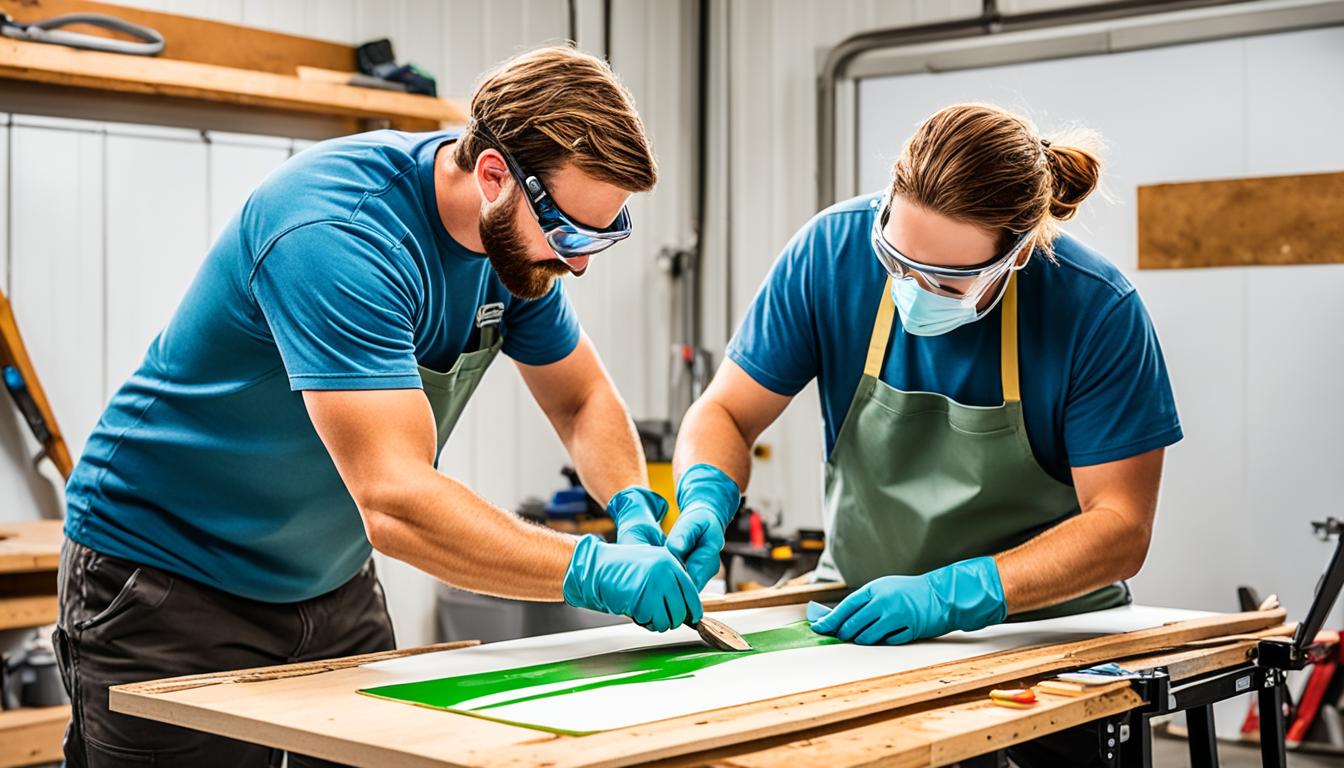To avoid critical prepping pitfalls, start by organizing your inventory and using effective storage methods. Don't solely rely on gear; master essential survival skills like first aid and navigation. Involve your family in planning to guarantee everyone knows their role during emergencies. Also, prepare emotionally by recognizing and addressing your family's needs. Keep essential documents secure and easily accessible. Avoid over-dependence on technology—balance it with non-tech skills. Finally, prepare not just for disasters, but everyday emergencies, and don't forget about your pets. Stick around to uncover more strategies for successful prepping and readiness.
Key Takeaways
- Organize your inventory using effective storage methods and the FIFO principle to prevent spoilage and waste of resources.
- Regularly practice essential survival skills to enhance your readiness and decision-making during emergencies.
- Involve your family in emergency planning and drills to improve preparedness and reduce confusion during crises.
- Balance technology use with traditional skills and tools to ensure you can respond effectively during tech failures.
- Prepare for common emergencies by developing backup plans and maintaining accessible first aid supplies for everyday scenarios.
Inventory Mismanagement

While you may think that stockpiling supplies is all it takes to be prepared, inventory mismanagement can quickly turn your well-intentioned efforts into chaos. Without proper organization, you risk wasting valuable resources and creating unnecessary stress.
Implementing effective storage solutions helps you track and preserve your emergency items. Use the FIFO method to guarantee older items get used first, reducing spoilage. Regularly check expiration dates to prevent waste and keep your supplies current.
Assess your inventory throughout the year to maintain readiness. Remember, stockpiling without a clear plan can lead to wasted money and effort.
Diversifying your resources for various scenarios enhances your overall preparedness, making you more equipped to handle any situation that arises.
Skills Neglect

Many preppers make the mistake of focusing solely on gear, neglecting the essential skills needed to use that equipment effectively.
It's vital to master survival skills like first aid, fire-starting, and navigation. These skills not only boost your confidence but also guarantee you can adapt in crises when gear might fail.
Regular practice keeps your abilities sharp, allowing for quick decision-making under pressure. Consider attending workshops or taking courses to enhance your skill set.
Remember, relying too much on gear can create a false sense of security. Developing non-electronic skills guarantees you're prepared for emergencies when technology mightn't be available.
Prioritize skills alongside gear to create a well-rounded approach to your preparedness efforts.
Lack of Family Involvement

Involving your family in emergency planning is essential for effective preparedness. When everyone participates, it reduces confusion and guarantees that each person knows their role during a crisis.
Hold family meetings to discuss potential emergencies and create a collaborative plan. Practicing emergency drills together can increase your family's response effectiveness by up to 75%. This teamwork not only enhances your readiness but also strengthens family bonds.
Don't forget to include local networks in your planning; neighbors can offer valuable support in times of need. By engaging your family in these preparations, you create a sense of unity and resilience that will pay off when it matters most.
Emotional Readiness

A strong family unit enhances not just practical preparedness but emotional readiness too. When emergencies strike, emotions run high, and having a solid support system can make all the difference.
Recognizing how different zodiac signs influence personality traits can also help in understanding each family member's unique emotional needs and preferences, allowing for better support during crises astrological compatibility.
Create a plan that includes comforting activities—like family game nights or shared hobbies—to alleviate stress during crises. Stock up on emotional comfort items, such as favorite snacks or personal mementos, that can uplift spirits.
Practice coping strategies together to build psychological resilience, ensuring everyone knows how to manage anxiety. By prioritizing emotional readiness, you'll not only strengthen family bonds but also enhance your overall preparedness for whatever challenges lie ahead.
Missing Essential Documents

When emergencies arise, the last thing you want is to scramble for essential documents that could be critical for your safety and recovery. Missing these papers can delay assistance and complicate your situation.
To avoid this pitfall, create a checklist of important documents and keep them organized.
- Birth certificates and identification
- Medical records and insurance papers
- Property deeds and financial documents
Store these items in a fireproof and waterproof container for protection.
Additionally, regularly review and update your documents to reflect life changes.
Over-Dependence on Technology

How often do you rely on technology for your emergency preparedness? While gadgets can be helpful, over-dependence on them can leave you vulnerable. Power outages or device malfunctions may disrupt your plans, so it's crucial to develop non-electronic skills. Here's a quick look at ways to balance your tech use:
| Tech Dependence | Non-Tech Alternatives | Benefits |
|---|---|---|
| GPS navigation | Maps and compass | Reliability without power |
| Digital communication | Signal flags or walkie-talkies | No reliance on electricity |
| Online tutorials | Printed survival manuals | Accessible in emergencies |
Ignoring Common Emergencies

Ignoring common emergencies can leave you woefully unprepared for situations that may seem minor but can escalate quickly.
You need to recognize that everyday scenarios can disrupt your life just as much as extreme disasters.
Consider the following common emergencies:
- Natural disasters: Floods, hurricanes, or earthquakes can strike suddenly and require immediate response.
- Medical situations: Accidents or sudden illnesses demand quick action and accessible first aid supplies.
- Power outages: These can disrupt daily life, making it essential to have backup plans and resources ready.
Inadequate Pet Preparedness

Common emergencies can disrupt your life, and they often impact your pets too. If you haven't prepared for your furry friends, you might face unnecessary stress during a crisis.
Start by guaranteeing you have enough pet food and supplies to last at least a week. Don't forget to keep important documents, like vaccination records, easily accessible.
Equip your emergency kit with pet-specific gear, such as leashes, carriers, and any medications they need. Familiar items, like their favorite toys, can help comfort them during evacuations.
Frequently Asked Questions
What Are the Best Storage Solutions for Prepping Supplies?
For prepping supplies, use clear bins for visibility and organization. Label everything clearly, prioritize FIFO for perishables, and consider waterproof containers for critical documents. Regularly check your inventory to prevent spoilage and guarantee readiness.
How Can I Effectively Involve Children in Emergency Planning?
Imagine a family practicing fire drills together. To effectively involve children in emergency planning, explain the importance of each step, assign roles, and make it fun—like using games to reinforce learning and teamwork.
What Basic Survival Skills Should Everyone Learn?
You should learn basic survival skills like first aid, shelter building, fire starting, and navigation. These skills enhance your adaptability in emergencies, ensuring you can rely on yourself and make quick, effective decisions when needed.
How Do I Create a Pet Emergency Plan?
To create a pet emergency plan, gather essential documents, stock up on food and supplies, and include your pets in drills. Make certain you have carriers and leashes ready for swift evacuation when needed.
What Items Should Be Included in a Comfort Kit?
Imagine a cozy blanket in your comfort kit. Include snacks, favorite books, mementos, and games to uplift spirits during crises. Also, add personal comfort items to maintain familiarity and emotional support when you need it most.
Conclusion
By steering clear of these critical prepping pitfalls, you can truly bolster your readiness for any crisis. Think of it as updating your survival toolkit, just like upgrading your smartphone—it's all about having the right features when you need them most. Gather your family, sharpen those skills, and stay emotionally grounded. Remember, preparedness isn't just about gear; it's about creating a solid plan that keeps you and your loved ones safe. So, gear up and get ready! And while it’s important to be realistic about the potential risks and challenges we may face, it’s also crucial to maintain a sense of optimism in preppers. This mindset can help keep you focused on finding solutions and staying proactive in your preparations. Ultimately, being prepared is about having the confidence and determination to face any situation head-on. So, stay optimistic, stay prepared, and stay safe.










